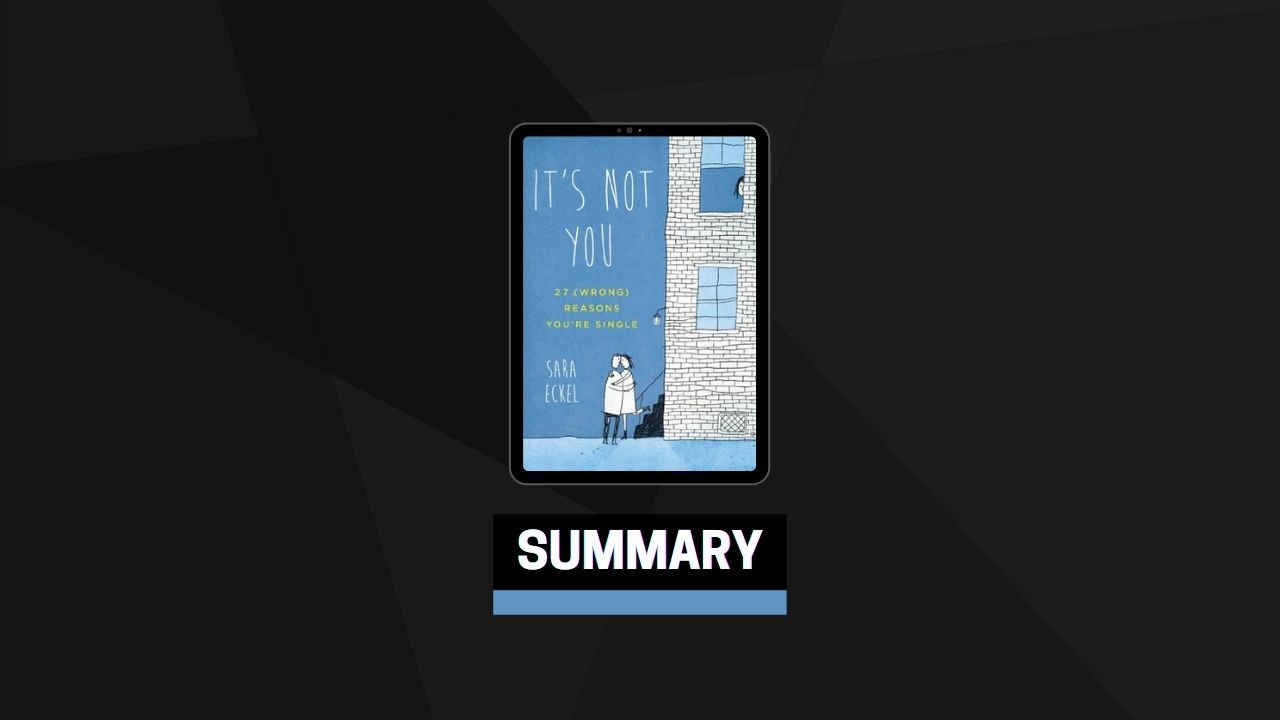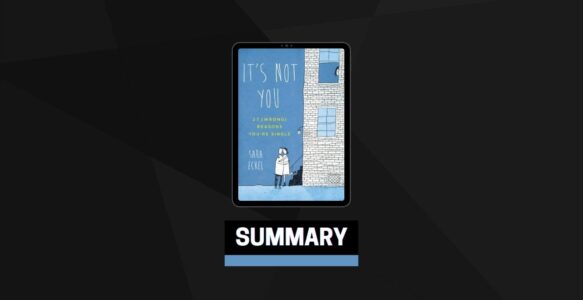YOU HAVE ISSUES
Sure, there are those whose emotional problems—from garden-variety intimacy fears to full-blown personality disorders—prevent them from being in committed relationships. The problem is, these pat conclusions have been lobbed at all singles seeking love. Unless you declare that your unattached state is completely chosen (which will arouse suspicions of another kind) the odor of “what’s the deal?” will hang in the air.
What if your only “issue” is the belief that you have them and that they’re keeping you from a relationship? What if you stopped defining yourself as someone who is afraid of intimacy or attracted to the wrong kind of man? What if you instead saw yourself as a flawed but basically lovable human being? What if the only reason you’re alone is you just haven’t met your partner yet?
YOU HAVE LOW SELF-ESTEEM
Not only does self-compassion soften life’s blows, it can also strengthen your ability to bounce back.
although we think being critical of ourselves will spur us into action, actually, the opposite is true. Think about it: You could spend the days or weeks after getting jilted contemplating all the possible reasons why that guy didn’t think you were girlfriend material—how he thought your musical tastes were pedestrian or was embarrassed that you couldn’t throw a Frisbee. Or you could decide to be extra nice to yourself—get an unlimited yoga card, take your lunch in the park, see a Bette Davis double feature. Which will make you more likely to date again?
YOU’RE TOO NEGATIVE
Instead of suppressing whatever cocktail of feelings—anxiety, ambivalence, lust—that’s brewing as you walk into that restaurant, why not just note them and barrel on ahead?
Dating is an act of outrageous vulnerability. You’re leaving the comfort of your home and your friends to subject yourself to the scrutiny of strangers. You’re sliding into that restaurant booth, plopping your laptop and gym bag on the floor, and saying, “Hi, I’m Sara. Let’s see if we can start a life together, shall we?”
It doesn’t get more optimistic than that.
YOU’RE TOO LIBERATED
Feminism never promised women that life would be easy—that there wouldn’t be hard choices and massive trade-offs. It never said that the corporate lawyer who hasn’t had a weekend off in four months wouldn’t at times gaze longingly at the hipster mom knitting a smartphone cozy while her kids play in the park. It merely said she should be free to make her own decisions—and even mistakes—because she’s smart enough to find her own way.
Having agency in your life doesn’t inhibit your ability to merge it with another’s—it only enhances it.
YOU’RE TOO INTIMIDATING
Men need to feel needed. And if you own your own home and dental practice, then what’s the point of him? “Regardless of the good intentions of these guides, their underlying message is the social gains women have made in the last few decades cause women to fail in love. They—and here’s the real bummer—make women fundamentally unlovable,” wrote University of Toronto professor Mari Ruti in her delightful book The Case for Falling in Love.
YOU’RE TOO DESPERATE
You didn’t rush back to that mediocre relationship. You didn’t grit your teeth and enter some passionless union with a perfectly nice guy who doesn’t get you. There are people who are afraid to be alone, who head for the nearest warm body after each breakup, or who stay in miserable relationships because the alternative is so terrifying. But that’s not you, is it?
YOU NEED TO BE HAPPY ALONE
living alone in a society that is so rigorously constructed around couples and nuclear families is hard on the soul. What’s important to know is that those pangs you feel as you walk though the park, past the multifamily picnics and couples marching by two-by-two, are not a sign that you’re deficient—they’re a sign that you have a functioning internal alarm system.
YOU’RE TOO PICKY
Human beings are not houses—you don’t walk in and say, “Well, so long as we gut the kitchen and add a third bathroom, this could work,” or, “It has no charm, but it’s close to work and it’s all I can afford.” No. You love them as they are, or you let them find someone else who does.
YOU’RE TOO AVAILABLE
Think about the most self-assured people you know. Are they inconsiderate, selfish, or withholding? Do they try to make you feel small and powerless? Or are they the ones who offer to take your coat and give you their full attention when you tell them about the book you’re reading? Are they the ones who notice when you’ve done something well and tell you so?
Think about yourself when you’re feeling most self-assured—when you’ve received a promotion or a great compliment or just feel damn good for no particular reason at all. Does this wellspring of self-worth make you aloof or ungracious? Are you compelled to make others feel unsure of themselves? Do you withhold praise and affection? Or are you more likely to say, “You look fantastic!” “That presentation was phenomenal.” “I got you a coffee, cream, no sugar.”
YOU DON’T KNOW HOW TO PLAY THE GAME
That creep who screwed you over isn’t most guys. Most guys are your coworkers, your brothers, and that sweet man you met for coffee and just didn’t click with. Most guys do not view themselves as a prize that you’re in a competition for—like you’re in an episode of The Bachelor, rather than Starbucks. Most guys want what you want: A partner in this confusing life.
How do you know when you’re making excuses for a douchebag? When are you being overly harsh about a guy who is just a little forgetful?
The best guide is “how does he make me feel?” Setting aside the whole high of infatuation, is the thoughtless remark an aberration from a guy who genuinely seems into you? Or does it set off alarm bells, compelling you to ramp up the salesmanship because the customer is moving toward the door?
And you know what, maybe you will screw up and completely misjudge a guy who turns out to be a rat. We are all, married or no, at risk of discovering that the person we chose to love will betray us. So instead of armoring ourselves with commandments about what we will and won’t accept, isn’t it stronger and braver to go into relationships—and first dates—knowing full well you could get hurt, and that you’ll also survive?


